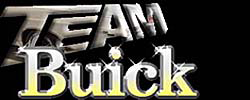I got the following from a website by the National Corn Growers Association
ETHANOL AND YOUR VEHICLE
Benefits of Ethanol Blends
Millions of Americans have driven billions of trouble-free miles using ethanol-blended gasoline over the past quarter century. The majority of this gasoline has been E-10 Unleaded, a blend of 10 percent ethanol and 90 percent ordinary unleaded gasoline. However, E85 (85 percent ethanol and 15 percent ordinary gasoline) is rapidly becoming an important part of the nation’s fuel supply.
Approved for use by every major automaker in the world, E-10 Unleaded provides a number of benefits for drivers:
- Additional octane: The ethanol in E-10 Unleaded adds two to three points of octane to ordinary gasoline, helping improve engine performance.
- Cleaner fuel injectors: Ethanol helps prevent the build-up of power-robbing deposits in fuel injection systems.
- A gas line antifreeze: Ethanol suspends moisture in the fuel systems, eliminating the need for gas tank additives in cold weather.
- Cleaner air: Ethanol reduces toxic emissions in engine exhaust, helping keep America’s air cleaner.
Consumer Myth-Busters
In spite of the fact that billions of trouble-free miles have been driven using ethanol-blended gasoline (most on E-10 Unleaded), some myths still persist regarding its use. Here are the facts:
MYTH:
Ethanol causes “vapor lock.”
FACT: State and federal statutes continue to lower vapor pressure levels, virtually eliminating the vapor lock problems that were reported in the past. Additionally, all major auto manufacturers now use in-tank fuel pumps, which are not subject to vapor lock problems as were the older in-line fuel pumps.
MYTH:
Ethanol plugs up fuel lines and fuel injectors.
FACT: Situations involving plugged fuel filters are virtually non-existent today. In the past (especially in cars made prior to 1975), switching to ethanol-blended gasoline occasionally resulted in the fuel system being scrubbed clean due to the cleansing nature of ethanol. The loosened residue would be caught in the fuel filter—requiring a filter change. Once the filter was changed, the fuel system remained clean, enhancing engine performance.
Some components in gasoline, such as olefins (which are a waxy substance), can cause deposits that foul injectors. But since ethanol burns 100 percent and leaves no residue, it cannot contribute to the formation of deposits. In fact, ethanol blends help keep fuel injectors cleaner.
MYTH:
Ethanol blends can’t be used in small engines.
FACT: E-10 Unleaded is perfectly acceptable in lawn mowers, snowmobiles, ATVs and other small engines that run on ordinary unleaded gasoline. Virtually every small engine manufacturer, including Briggs & Stratton, Honda, Toro/Lawnboy, Kohler and Snapper, approves the use of E-10 Unleaded in its equipment.
MYTH:
Most auto mechanics tell people not to use ethanol-blended gasoline.
FACT: A mechanic who says not to use E-10 Unleaded simply does not have correct information—particularly since every major automaker in the world approves the use of 10 blends ethanol blends under warranty. Fuel formulation and fuel quality have changed dramatically over the years, and many auto mechanics simply don’t have current information or knowledge of these changes and how they affect engine performance. The result: When a problem appears to be fuel related, some mechanics will immediately ask if E-10 Unleaded has been used—and if so, blame ethanol for the problem. In some states, E-10 Unleaded advocates have offered a substantial reward to any customer who can document damage from E-10 Unleaded to his or her car—and so far, no one has ever collected.
MYTH:
E-10 Unleaded cannot be used in older cars.
FACT: The formulation of gasoline has changed considerably over the past few years without affecting the performance of older cars. Many older cars were designed to run on leaded gasoline, with the lead providing the octane necessary for engine performance. When lead was phased out of gasoline, oil companies added toxic chemicals to raise the octane rating and other additives to replace the “lubrication” value of lead.
The ethanol in E-10 Unleaded raises octane in gasoline by three points and it does so using a natural, renewable additive that works well in older engines.
Automakers That Approve Ethanol Blended Gasoline
The use of ethanol-blended fuel (E-10 Unleaded) is approved under warranty by every major automaker in the world including:
- General Motors (Buick, Cadillac, Chevrolet, Chevy pickups, GMC pickups, Geo, Oldsmobile and Pontiac)
- Ford Motor Company (Ford, Lincoln, Mercury and Ford pickups)
- DaimlerChrysler (Chrysler, Dodge, Jeep, Plymouth and Dodge pickups)
- Acura
- Audi
- BMW
- Honda
- Hyundai
- Infiniti
- Isuzu
- Jaguar
- Kia
- Land Rover
- Lexus
- Mercedes-Benz
- Mazda
- Mitsubishi
- Nissan
- Porsche
- Rolls Royce/Bentley
- Saab
- Saturn
- Subaru
- Suzuki
- Toyota
- Volkswagen
- Volvo
Ethanol-Blended Fuel and Your Motorcycle
The use of E-10 Unleaded is approved for use by major motorcycle manufacturers including Harley-Davidson, Honda, Kawasaki, Suzuki and Yamaha. Harley-Davidson goes so far as to recommend the use of renewable, clean air fuels such as E-10 Unleaded because of their environmental and performance benefits.
Use of Ethanol Blends in Small Engines
More than 40 percent of the gasoline sold across the United States contains oxygenates such as ethanol, so small engine manufacturers have made certain their engines perform on these clean-burning fuels. Generally, E-10 Unleaded may be used anywhere that ordinary unleaded gasoline is used—from lawn mowers to personal watercraft, from power equipment to marine engines. Check your owner’s manual for specific information regarding your equipment.
Off-road vehicles such as ATVs and snowmobiles do not have pollution control devices, as do passenger cars and trucks. Ethanol-blended gasoline helps reduce exhaust pollution from these types of vehicles. That’s one reason that Yellowstone National Park requires that all fuel sold in the park contain 10 percent ethanol.
E85 and Flexible Fuel Vehicles (FFVs)
There has been a dramatic increase in the availability of E85—a blend of 85 percent ethanol and 15 percent ordinary unleaded gasoline. All major American automakers offer models that can operate on E85. Called Flexible Fuel Vehicles or FFVs, these vehicles can actually run on E85, E-10 Unleaded, ordinary unleaded gasoline—or any combination thereof. A computer in the fuel system automatically adjusts for the level of ethanol in the fuel. In other words, FFV owners do not have to fill up with E85 all the time.
The number of E85 stations is increasing every month. For a current list of E85 stations and a list of FFVs available, visit: www.e85fuel.com.







 68 Skylark 455
68 Skylark 455
 If you would llike to place an image of your car in your signature,
If you would llike to place an image of your car in your signature,  WEBNOTE: When inserting an email in a posting, use the "smilie" @ so that web robots don't pick up your address and send you more junk mail!
WEBNOTE: When inserting an email in a posting, use the "smilie" @ so that web robots don't pick up your address and send you more junk mail!
 Hey Bob
Hey Bob

 Thanking YOU, for YOUR Valued Cooperation and Experience in This Matter.
Thanking YOU, for YOUR Valued Cooperation and Experience in This Matter. 
Bookmarks